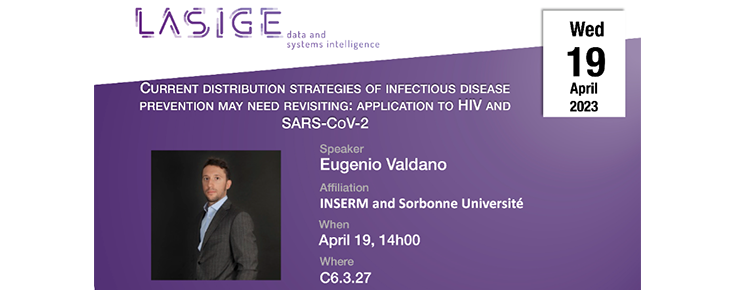
Por Eugenio Valdano (INSERM and Sorbonne Université).
In this talk, I will discuss two studies that may challenge well-established strategies for distributing infectious disease prevention. The first study addresses the optimal distribution of vaccines and prophylactic tools in populations susceptible to infection, with a focus on men who have sex with men and the distribution of pre-exposure prophylaxis for HIV. We finds that a non-selective distribution strategy may be more effective than a risk-based approach. The second study investigates the impact of vaccination homophily on COVID-19 transmission in European countries. We find that reducing vaccination homophily through increasing primary vaccination may significantly reduce COVID-19 burden, in addition to booster doses for those already vaccinated. These findings suggest that careful consideration of distribution strategies is essential for effective epidemic control.
Bio: Eugenio Valdano works as a researcher at the Pierre Louis Institute of Epidemiology and Public Health (IPLESP) of the French National Institute of Health and Medical Research (INSERM), and Sorbonne Université, in Paris, France. He has a background in theoretical physics and specializes in infectious disease epidemiology. He uses mathematical models to study the spread of infectious diseases in human and animal populations, taking into account patterns of human mobility and mixing. By combining epidemiological and behavioral data, he can make scenarios and design public health interventions to contain and eliminate epidemics. His current research interests include COVID-19 and HIV/AIDS. He is also interested in studying the impact of climate change on epidemics as his next goal.














